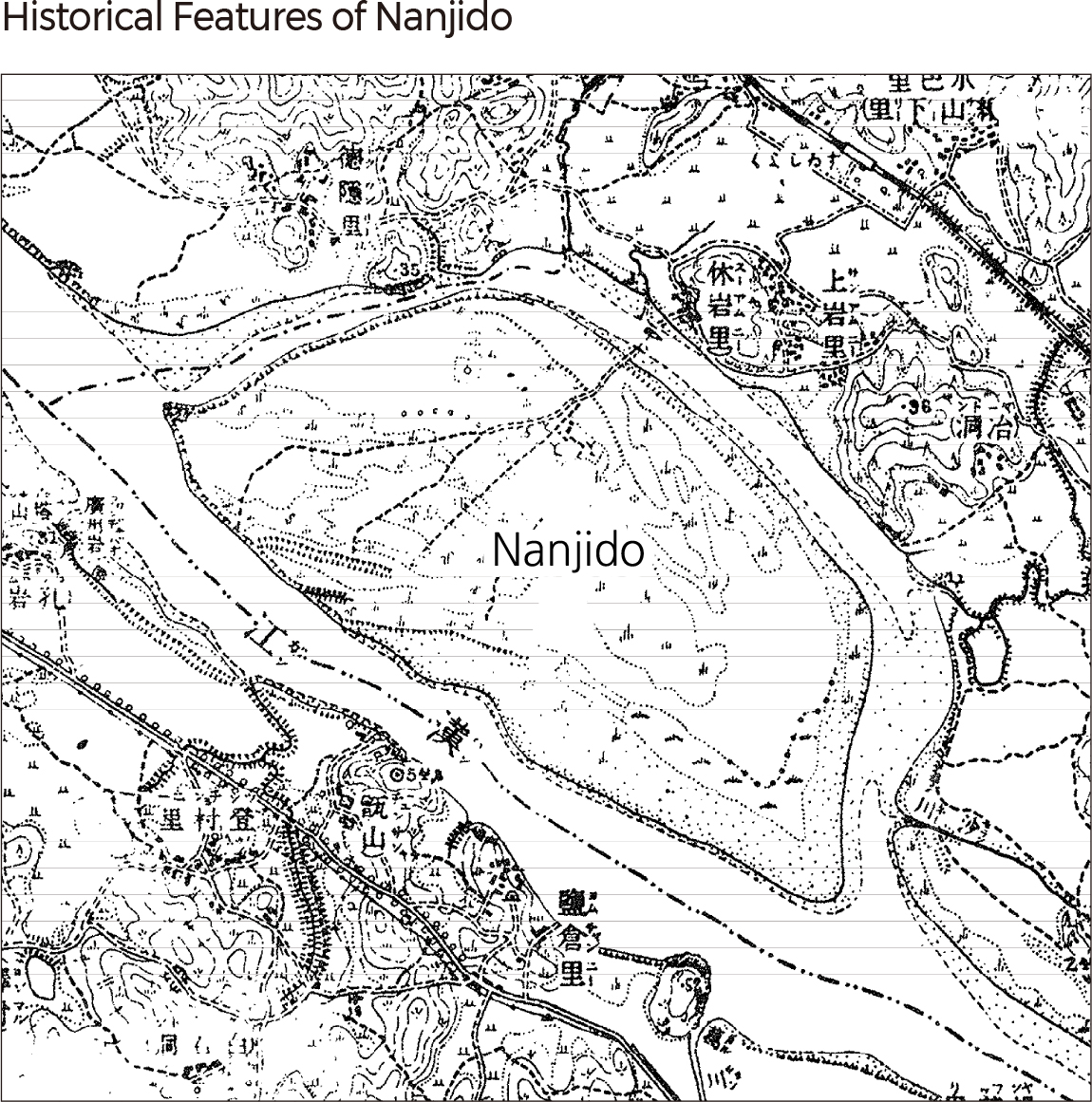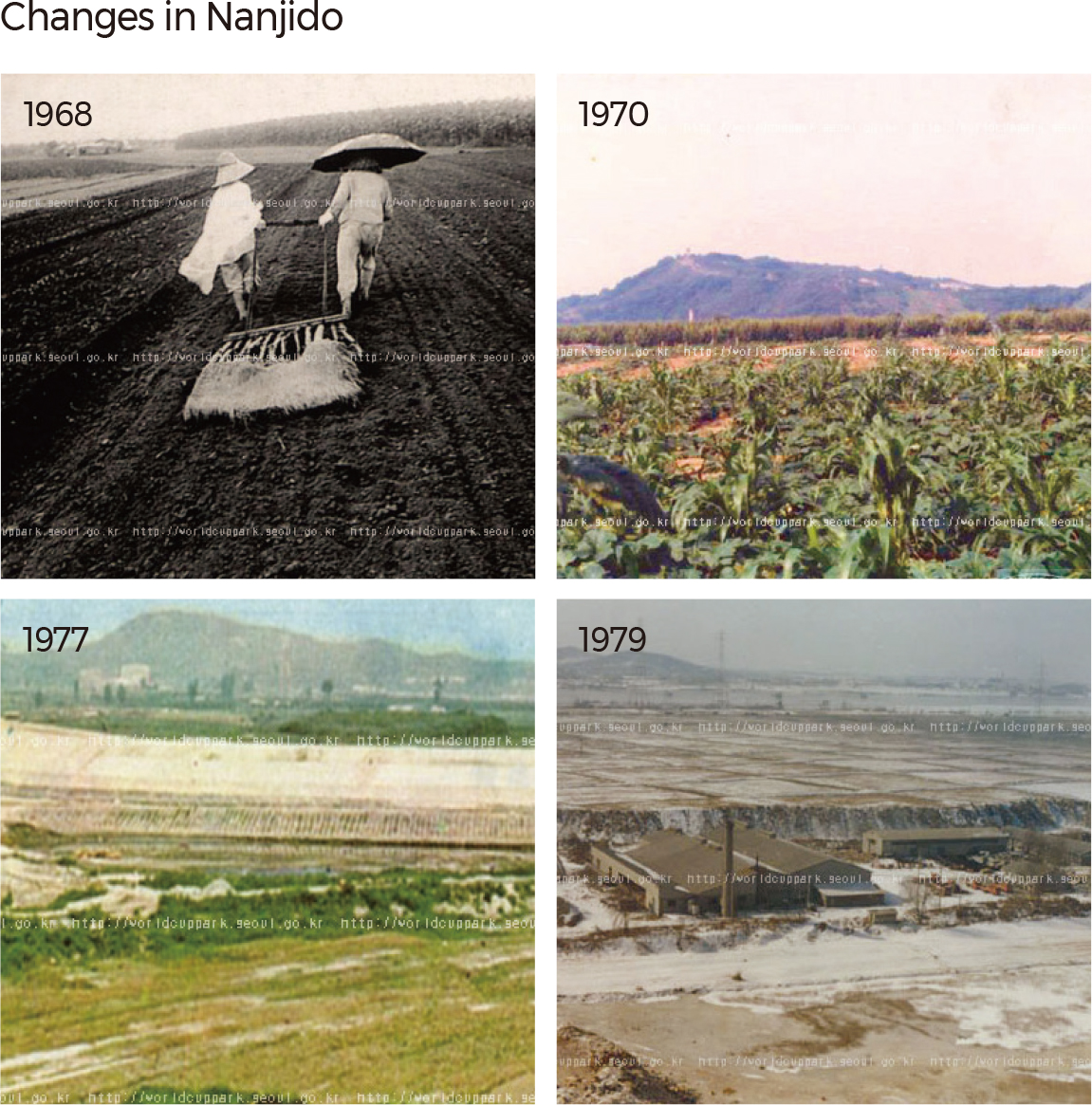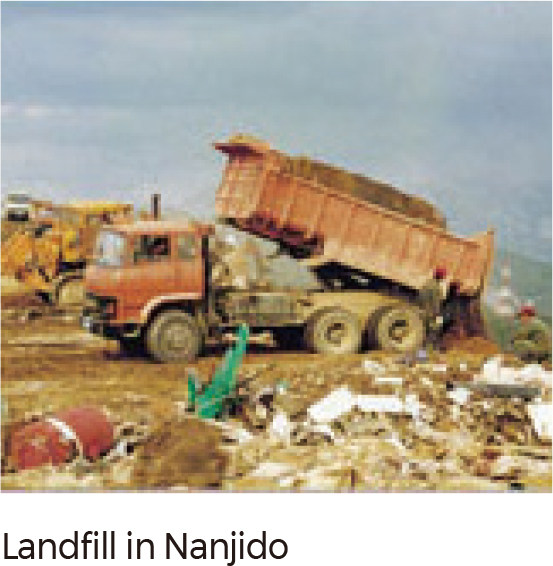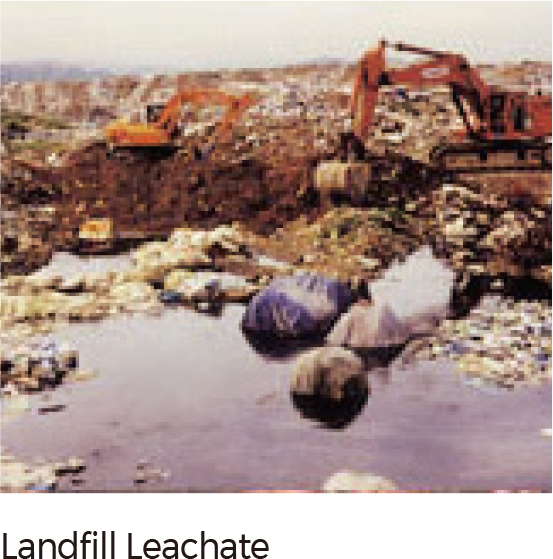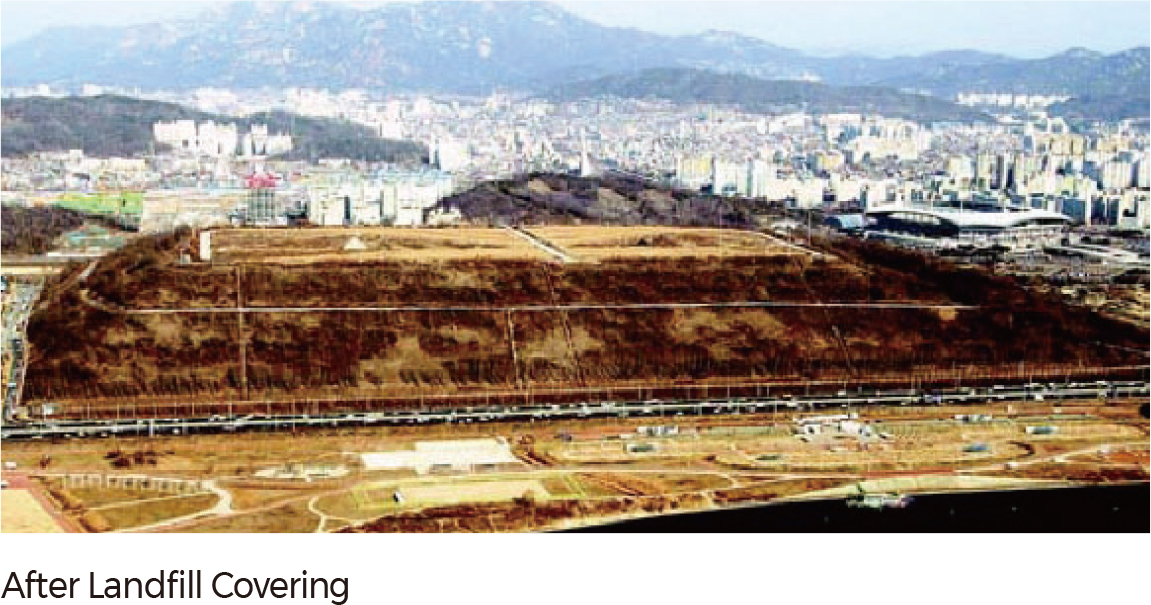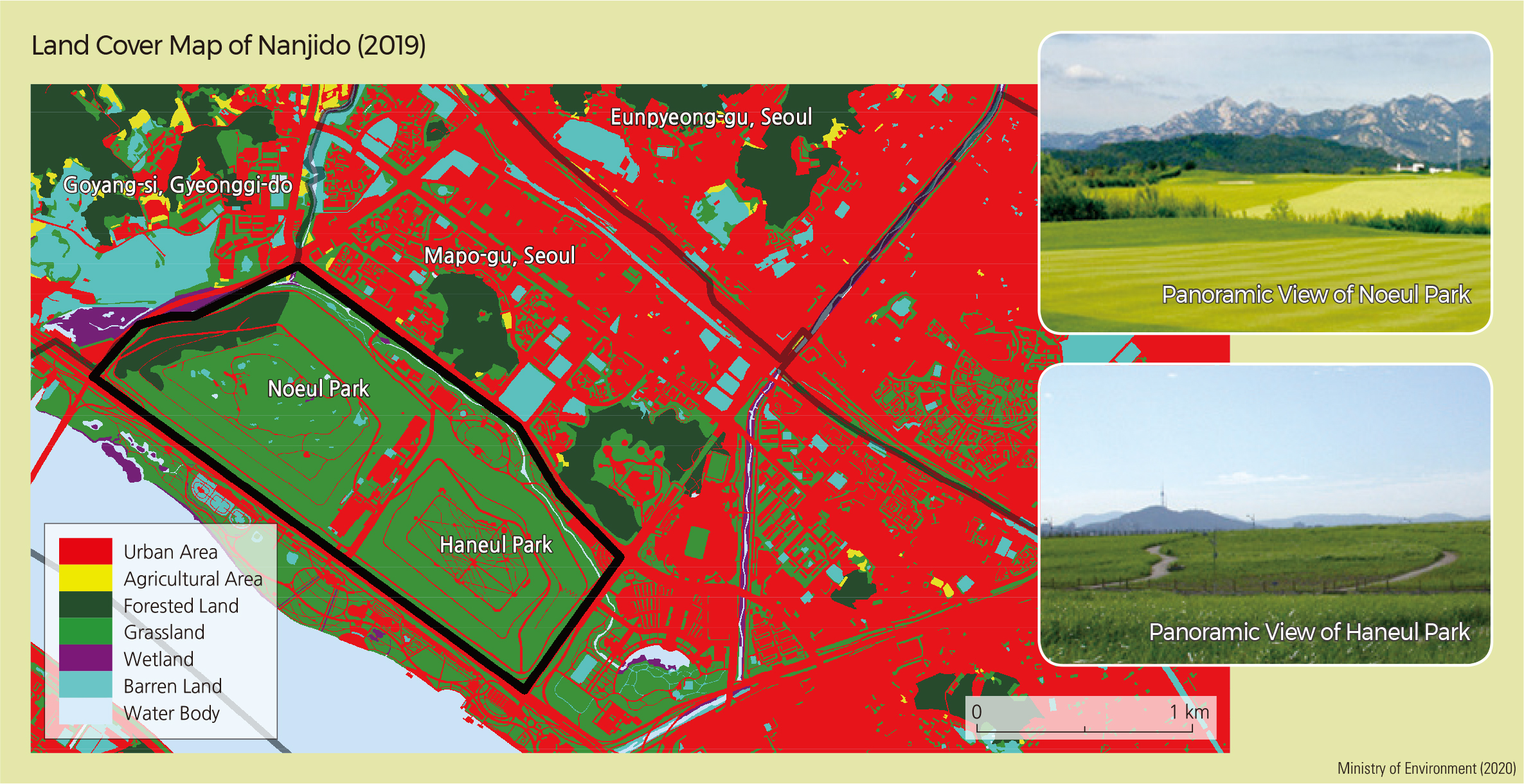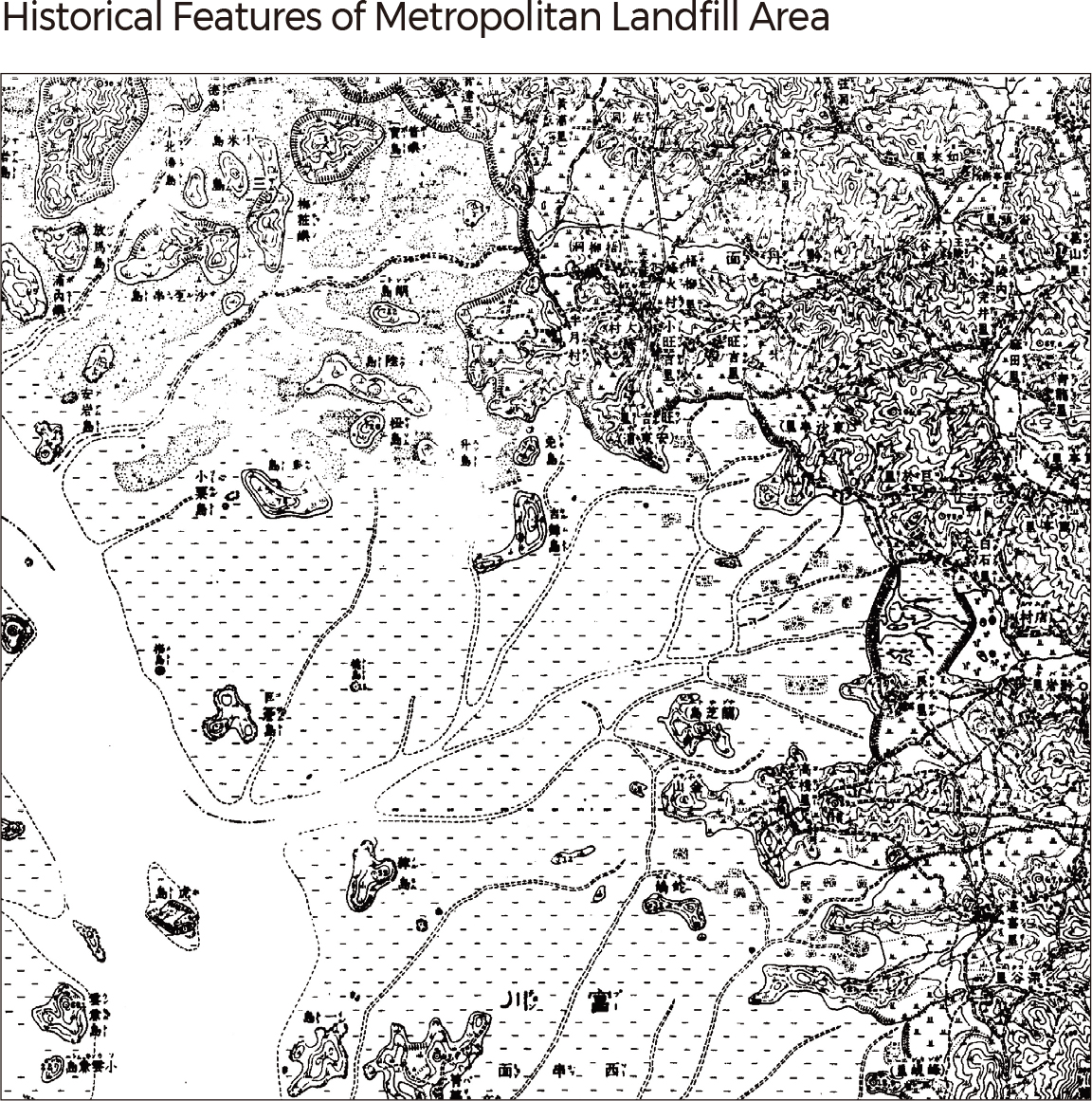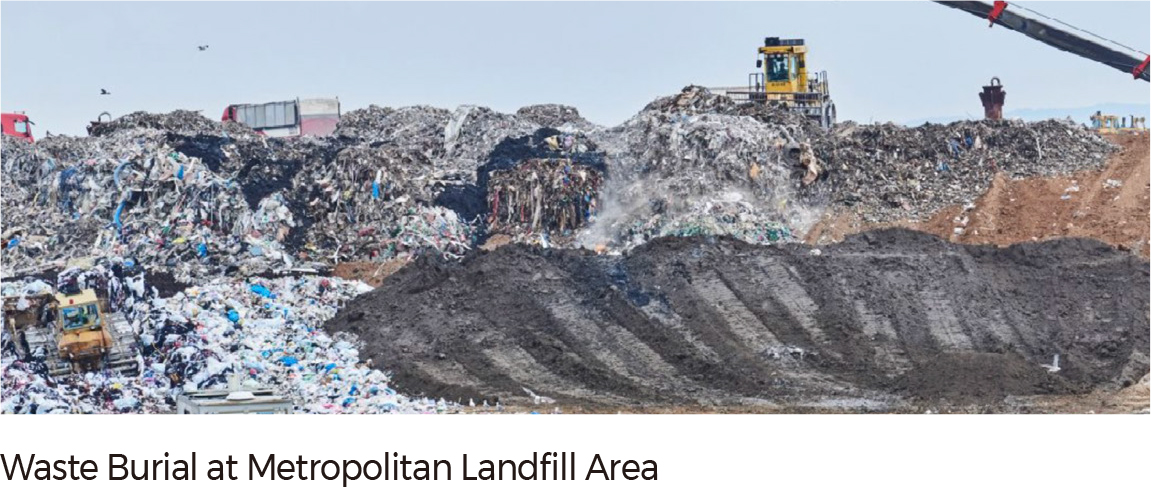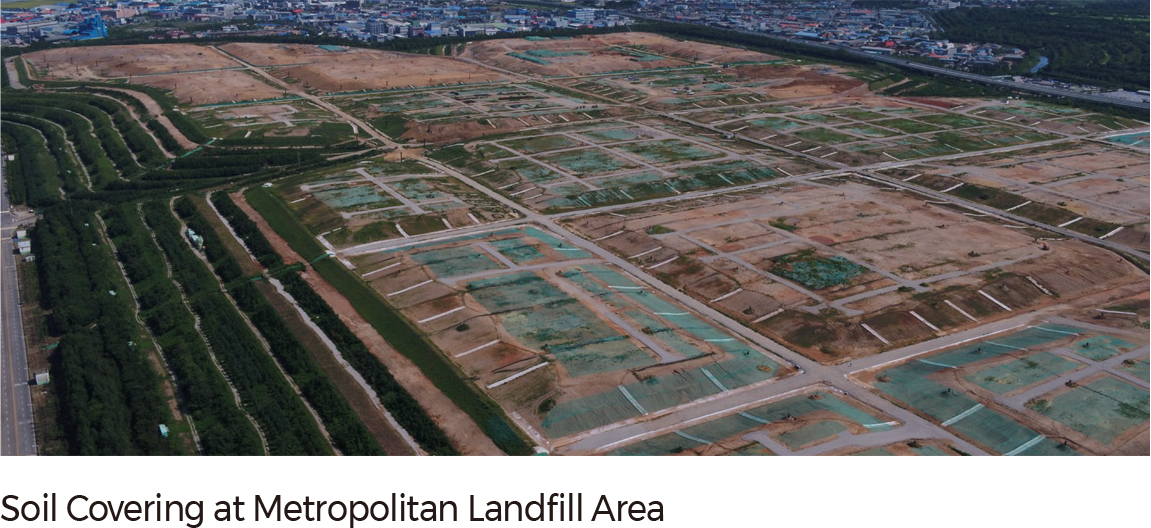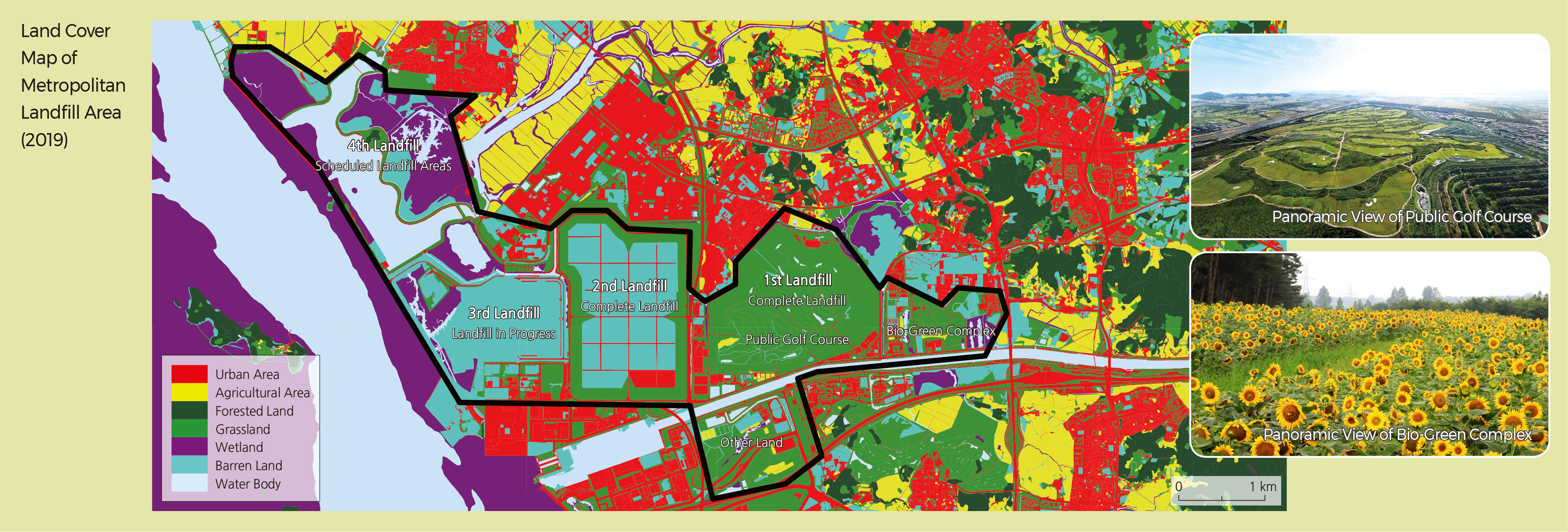English II 2020
Nanjido, formerly used as a landfill site for Seoul and northern Gyeonggi-do, is now an ecological park. After it was first designated as a landfill on August 3rd, 1977, the site received 110.5 million tons of waste over the next 15 years until the landfill was finally terminated on March 19th, 1993. Within the landfill’s area of 2.9 km², two huge waste mountains, collectively spanning 1.75 km², were created by piling up the waste.
As a result, Nanjido, formerly a low-lying area at an altitude of 8 m, reached 98 m above sea level. The Seoul Metropolitan government devised a plan to create an ecological park on this landfill site, which is now known as the World Cup Park. This park features five theme parks: Pyounghwa Park, Haneul Park, Noeul Park, Nanjicheon Park, and Nanji Hangang Park. Noeul Park and Haneul Park are directly located upon former Nanjido landfills #1 and #2. Currently, stabilization work is in progress and is scheduled to continue until 2022. Methane gas and other substances released from the closed landfill are used as heat energy sources for facilities at World Cup Park and Seoul World Cup Stadium.
The metropolitan landfills—under construction from 1989 until their opening in 1992—were established to substitute for the Najido landfill. They consist of four landfills and combined make up the world's largest waste landfill in terms of total area. The 1st, 2nd, and 3rd landfills are located in Geomdan-dong, Seo-gu in Incheon. The 1st landfill was closed in 2000, and the 2nd landfill is currently in use. The 4th landfill will be located in Daebeokri, Daegot-myeon and Hakun-ri, Yangchon-eup in Gimpo-si. The metropolitan landfills were initially scheduled to be terminated by 2016. However, new measures such as the introduction of a volume-rate garbage disposal system and enhanced recycling greatly reduced the volume of waste that was produced in the 1990s and 2000s. As a result, on June 29th, 2015, the local governments of Seoul, Incheon, and Gyeonggi-do agreed to extend the term for the metropolitan landfills to 2025. They also determined that substitute local landfills will be prepared before the end of the term. The closed 1st landfill has been converted to a wildflower garden and a sports park that now serves as a leisure site for local residents. |
